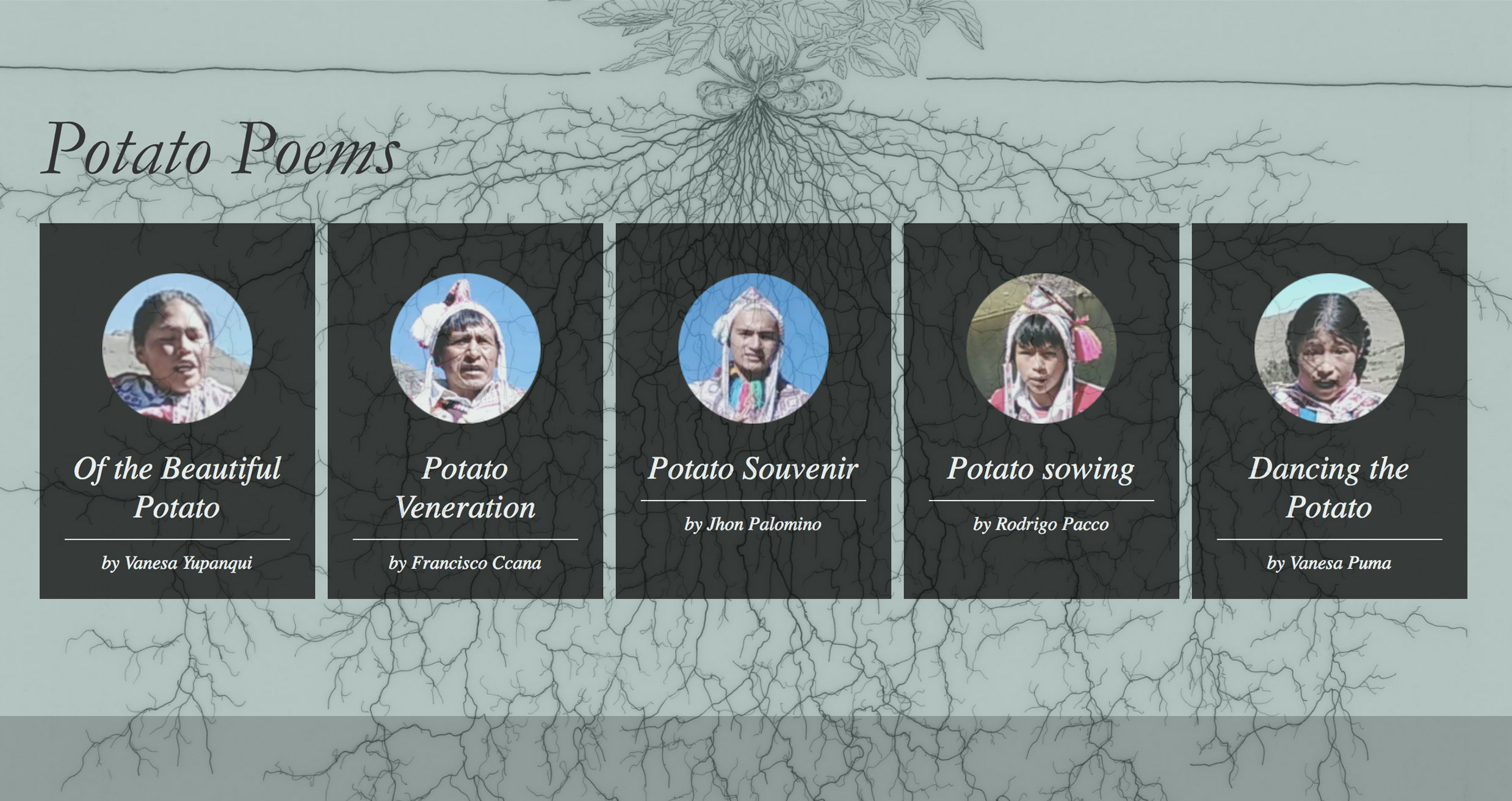Tuberous Respect after Progress
Praising Verses and Potato Flourishing in the Andean Highlands
Since they first domesticated the potato some 8000 years ago, Andean people have worked to shape thousands of varieties differing in form, texture, colour and taste. Yet successive agricultural intensification campaigns since the second half of the past century, paired with increased access to the regional labour market, have reduced potato diversity in Andean fields. The poems presented in this digital exhibition tell the story of potato-human companionship in the Cuzco highlands (Peru), where 6 communities have gathered together in 2002 to create a Potato Park intended to revive a shrinking population of native potatoes after agricultural progress. Beside the conservation of agrobiodiversity, these cultivators work to raise potato respect (respeto, in Spanish). In these highland households, potatoes do not feature as food to be passively ingested; and rather as kin imbued with intentionality and affectivity.

These verses are declaimed by cultivators to cheer tubers up, and thereby sustain the composition of agricultural communities (ayllus) assembled through interspecies relatedness, more-than-human respect and ecological care. Besides, their public recitation on the National Potato Day proclaims highland dwellers’ entanglement with tubers - in a national context where a racist depiction of wretched Indianness was historically hinged upon a scorn for highland agriculture. As well as weaving potato-human relatedness in the ayllu, this tuberous aesthetic is intended as a cosmopolitical intervention reclaiming agricultural livelihood captured in the webs of capitalist exploitations.
